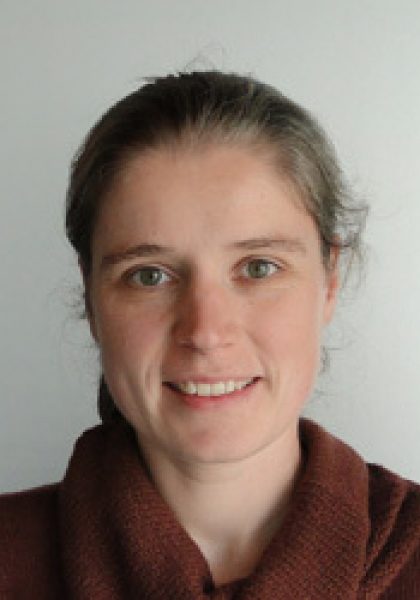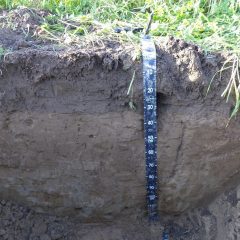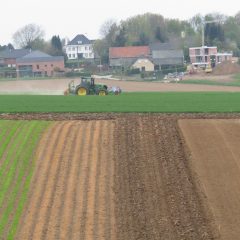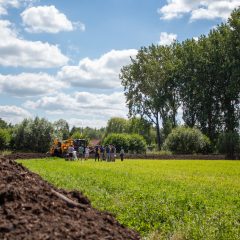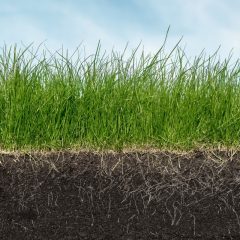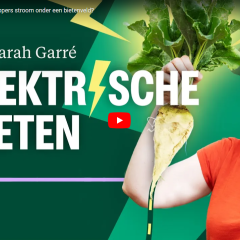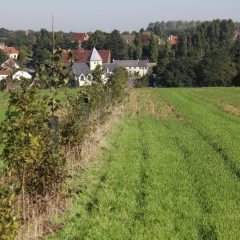Research project Sustainable soils by quality compost with defined properties
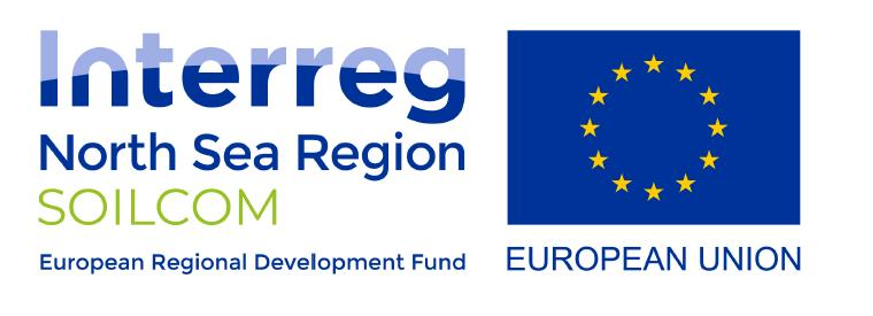
General introduction
In the Soilcom project, high-quality, tailor-made composts with well defined properties and effects were developed and characterized. These composts can help fighting the rapid soil degradation that can occur in intensive agricultural systems such as in the North Sea region. Biological residual flows, such as fruit, vegetable and garden waste and harvest residues, were used as raw materials in the compost recipes. Attention was paid to both local practices (farm compost) and commercial composting companies that operate on a regional scale. Attention was also paid to legislation. A focus point is a legal framework for cooperative farm composting.
Research approach
The Soilcom project is now ended. Advice was provided for composting at both commercial and farm composting sites. The process was examined, and the raw materials and end product were characterized. An extensive set of compost properties has been developed and measured on dozens of composts, giving both producers and users a clear picture of the compost quality, as well as the possibility to adapt or apply compost. Compost properties were matched with the intended application (soil - crop - cultivation system). The extensive characterization also allowed to identify relationships between compost characteristics and with raw materials and composting practices. There was broad cooperation with the stakeholders to increase the chance of success and implementation. In addition, attention was also paid to the compost application. In various field trials, including the ILVO Bopact field trial, positive effects of compost application on soil and crops were observed. There was also work done on the legal framework for cooperative farm composting.
Relevance/Valorization
Soilcom has made an important contribution to converting so-called waste streams into a valuable resource. It has led to a more circular economy and support for EU policy in this area. Within the project collaborations with pilot centres, consultants, compost producers, growers and regional authorities were created to address local, regional and trans-European needs. This leads to increased carbon storage, nutrient efficiency and productivity of vegetable growers and more qualitative composts at companies. Advice on improved legislation was formulated for both tailor-made composts and farm composting.
Financing
Interreg VI North Sea
Provincie Antwerpen
Provincie Oost-Vlaanderen
